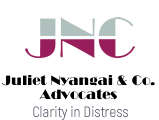
SOCIAL MEDIA AS A CATALYST FOR TERRORISM
- 24th February 2016
- JNC Advocates
- Featured, Law
- Consultation, JNC Advocates, Lawyer, Social Media
- 0 Comments
Presently, the use of internet and ICT-enabled platforms is not considered a luxury but a requisite especially in the realms of commerce, economics, entertainment and even geopolitics. Ever since the 2009 Arab Spring revolution, Social media continues to play a critical role in shaping and influencing public opinion beyond what traditional media achieved in previous decades. Barack Obama, perhaps the most outstanding politician to have ever mobilized votes and finances online still maintains and runs a powerful Social Media presence. A recent poll by Ipsos Mori in the United Kingdom just ahead of the 2015General Elections found that seven in ten Britons (71%) feel that social media platforms are giving a voice to people who would not normally take part in political debate. This is particularly the case for young people (88% of 18-34s, compared with 56% of those aged 55+). The study further found that on balance, people also feel that social media platforms are breaking down the barriers between voters and politicians and political parties (by 50% to 28%). Again, young people are most positive (60% agree that social media are breaking down the barriers, compared to 39% of those aged 55+).
While all these positions point to the positive, there is an emerging discourse about the role of social media in spreading, heralding and sustaining terrorism ideologies. Such ideologies seek to promote a preferable image of terrorism that downplays the criminal intent and complicity. Through a diverse range of communication tools including social media, terrorists have been able to amass vast influence that has seen most states with active terror cells looking for better intelligence, legal and deterrence approaches to combat these ideologies. This article seeks to contribute to this ongoing discourse by presenting a legal analysis that should be struck when balancing between protecting fundamental freedoms of expression and the emerging trend of promoting terrorism known as terror speech.
Does Freedom of Expression cover terror speech?
Freedom of the press is a fundamental right of man recognized and protected by the law of all modern states. This right is closely associated with freedom of speech. The 1948 Universal Declaration of Human Rights (UDHR) acknowledged under Article 19 acknowledged the right to freedom of opinion and expression. In Kenya, freedom of Expression; Freedom of the Media and Access to Information are recognized rights and fundamental freedoms clearly envisaged in Articles 33, 34 and 35 of the Kenyan Constitution, 2010. All these provisions however come with a rider of responsibility that requires those who seek to use them as legal defenses, to appreciate the limits. Terror speech, which can be construed to include speech acts, artistic and creative expression that promotes, justifies or even rationalizes terror, acts of terrorism or the perpetrators is not considered as part of freedom of expression whether broadcast on traditional or even social media. This is because, the motive shared across by many terrorist groups is violence that targets mass casualties based on their religion, political persuasion and lifestyle.
Are current legal tools responsive to social media driven terror speech?
Social media has been used by terrorist groups to their advantage, either as a communication medium, to of course spread further terror, to popularize themselves and most importantly win new recruits. Social media and other ICT enabled platforms of social interactions are thus a powerful radicalization tools for the terrorist groups.
Scholars have argued that the affordability and broad reach of social media platforms such as Facebook, Twitter and YouTube has allowed terrorist groups to communicate and also air their extremist messages not only among themselves but also among the public. A clear example of terrorist groups making use of social media to convey their messages was the release of Osama Bin Laden video recordings which were later sent directly to mainstream media including Al-Jazeera. In January 2009, an audio recording purportedly by bin Laden was posted on Islamist websites calling for a new jihad over the Israeli offensive in Gaza.
Terrorist groups not only use social media and the internet to relay messages and communicate but also to obtain information. In December 2014, according to ABC News online, in a joint intelligence bulletin issued overnight by the FBI with the Department of Homeland Security, officials strongly urged those who serve in uniform to scrub their social media accounts of anything that might bring unwanted attention from ‘’violent extremists’’ or would help the extremists learn individual service members’ identities. Social media and the internet offers a new strategic communication environment which impacts knowledge to the terrorists. In 2013 two brothers in Boston wreaked havoc in an International Event, The Boston Marathon after using basic internet received knowledge to create homemade bombs.
Social Media as a Driver for Radicalization, Indeed, the internet and social media are widely cited as the prime hub for ISIS recruitment not only in Sub Saharan Africa but also in Western audiences thus social media is an effective recruitment tool. In an online article by Mr. Bergen a CNN national security analyst and Professor at Arizona State University he states that Online networks are often seen as a boon for would-be radicals, but in fact, many Americans attracted to Islamic State have triggered investigations because of their inveterate use of social media to proclaim their sympathizers.
MS Juliet O. Nyang’ai is an International Law Expert, Principal Partner at JNC & Advocates and a Commentator on National Security Legislation
She can be reached on jncadvocates@gmail.com



Leave a Reply
You must be logged in to post a comment.